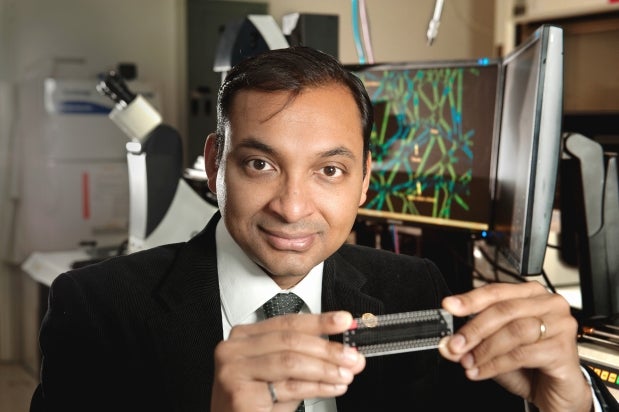
In an academic environment, that can mean pulling together a team of researchers dispersed across a campus, a country, or the entire world.
“If I’m able to solve the problem myself I shouldn’t be working on that problem, it would be too trivial,” University of Alberta researcher Sushanta Mitra recently remarked to a colleague.
Mitra, a professor of mechanical engineering, works on projects that address global challenges in the fields of medicine, energy, and the environment.
He is a director at the National Institute for Nanotechnology, one of the world’s largest nanotech labs. He’s one of the Canadian leads on a $30-million, five-year collaboration among 11 universities in Canada and India focusing on water quality, disease control and infrastructure known as IC-Impacts. As well, he’s the lead on a team of 15 researchers in Canada and the United States who are working through Carbon Management Canada to convert coal into natural gas without taking the coal out of the ground.
The IC-Impacts project, Mitra said, will boost Canada’s ability to participate in international research and engineering collaborations.
Please see the news article for more details.